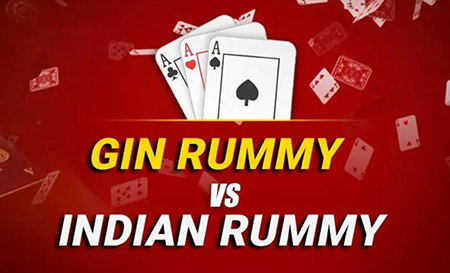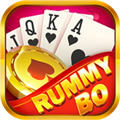What is the difference between Gin Rummy and Rummy Howto Play?
Views: 147 Update date: Nov 27,2023
Gin Rummy and Rummy Howto Play are both popular variants of the traditional card game Rummy, but they have some key differences.
Number of Cards:
Gin Rummy: Usually played with 52 cards.
Rummy Howto Play: Typically played with two decks of 52 cards each, making a total of 104 cards.
Dealing:
Gin Rummy: Each player is dealt 10 cards.
Rummy Howto Play: Players are usually dealt 13 cards each.
Objective:
Gin Rummy: The main objective is to form sets (three or four cards of the same rank) and runs (three or more cards in consecutive order of the same suit). A player can also "knock" if they believe they can form their entire hand into sets and runs with little or no deadwood (unmatched cards). The opponent then has a chance to lay off any remaining deadwood, and points are scored based on the value of the remaining deadwood.
Gin Rummy: Points are typically awarded for deadwood cards left in the losing player's hand after a knock, with specific values assigned to each card.
Rummy Howto Play: Points are usually assigned based on the value of the unmatched cards left in the opponent's hand after a declaration.
Card Drawing:
Gin Rummy: Players take turns drawing a card from the discard pile or the stock pile and then discarding a card.
Rummy Howto Play: Players draw a card from the open deck or the closed deck and then discard a card. The open deck is formed by placing cards face-up after each player's turn.
Jokers:
Gin Rummy: Jokers are not typically used.
Rummy Howto Play: Jokers are often used and can substitute for any other card in forming sets and runs.
Variations:
Gin Rummy: There are different variations of Gin Rummy, including Straight Gin and Oklahoma Gin.
Rummy Howto Play: There are several variations of Rummy Howto Play, such as 10 Cards Rummy, 21 Cards Rummy, and so on.
While both games share the fundamental concept of forming sets and runs, the specific rules and nuances make them distinct variants of the Rummy card game.
Number of Cards:
Gin Rummy: Usually played with 52 cards.
Rummy Howto Play: Typically played with two decks of 52 cards each, making a total of 104 cards.
Dealing:
Gin Rummy: Each player is dealt 10 cards.
Rummy Howto Play: Players are usually dealt 13 cards each.
Objective:
Gin Rummy: The main objective is to form sets (three or four cards of the same rank) and runs (three or more cards in consecutive order of the same suit). A player can also "knock" if they believe they can form their entire hand into sets and runs with little or no deadwood (unmatched cards). The opponent then has a chance to lay off any remaining deadwood, and points are scored based on the value of the remaining deadwood.
Rummy Howto Play: The primary goal is to form sets and runs with the 13 cards dealt. A player can declare once they have arranged their cards into valid sets and runs. The opponent then has to minimize the value of their unmatched cards. Points are scored based on the value of the cards left in the opponent's hand.

Gin Rummy: Points are typically awarded for deadwood cards left in the losing player's hand after a knock, with specific values assigned to each card.
Rummy Howto Play: Points are usually assigned based on the value of the unmatched cards left in the opponent's hand after a declaration.
Card Drawing:
Gin Rummy: Players take turns drawing a card from the discard pile or the stock pile and then discarding a card.
Rummy Howto Play: Players draw a card from the open deck or the closed deck and then discard a card. The open deck is formed by placing cards face-up after each player's turn.
Jokers:
Gin Rummy: Jokers are not typically used.
Rummy Howto Play: Jokers are often used and can substitute for any other card in forming sets and runs.
Variations:
Gin Rummy: There are different variations of Gin Rummy, including Straight Gin and Oklahoma Gin.
Rummy Howto Play: There are several variations of Rummy Howto Play, such as 10 Cards Rummy, 21 Cards Rummy, and so on.
While both games share the fundamental concept of forming sets and runs, the specific rules and nuances make them distinct variants of the Rummy card game.



